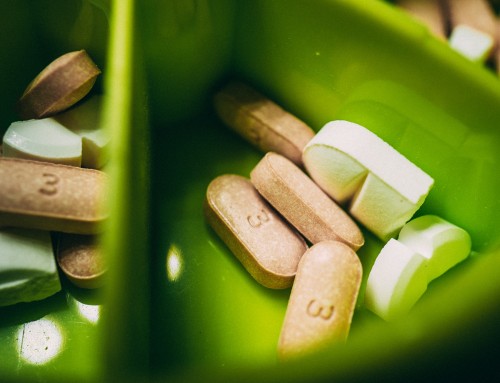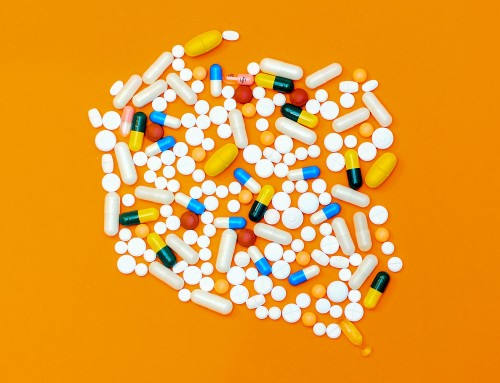Plant Vs. Animal Protein
Plant Vs. Animal Protein
For many years animal protein has been considered the primary source of protein for both its quality and effectiveness. More recently plant protein has risen in popularity and is slowly being established as an alternative for people with dietary needs (vegan/vegetarian) and conditions (lactose intolerance, allergies, etc..). This article will ask questions about both forms of protein to decide if there are any differences in results.
Before we explore both forms of protein we need to understand its purpose. Protein supplementation can increase the rate in which muscles can repair and grow, this process is known as Muscle protein synthesis (MPS).
Muscle Protein Synthesis (MPS)
When performing any form of exercise/physical activity that requires you to lift or pull against a resistance your skeletal muscles are called into action. This activity causes stress on the muscle fibers, which rips or tears them causing muscle protein breakdown (MPD).
Muscle Protein Synthesis is the process in which satellite cells which sit on the outside the muscle fibres are activated which calls upon amino acids (which are found in protein sources) to help repair them. Although all amino acids help in some part, the main amino acids that are used in this process are Isoleucine, leucine and valine. Strenuous exercise is also known to release higher amounts of growth hormones which can also help with this process.
In order to increase lean muscle mass MPS needs to be greater than MPD, and the degree of difference between the two will determine how effective it is.
As we get older we experience a decline in muscle mass known as sarcopenia, it is therefore important to stimulate MPS by ensuring adequate amount of protein in the diet and resistance exercise, (preferably twice a week for 30 mins).
Animal Vs. Plant
The reason why animal protein has been preferred over plant protein is due to the amount of Leucine available. Animal Protein sources generally have a higher amount of leucine as well as other plant proteins not having a full spectrum of amino acids which can impair muscle growth but still enough to help. However with the rise in popularity of plant protein and additions other a much wider range has led to the latter point being questioned.
Different Types
For people wanting to gain muscle mass protein powders and resistance training are both needed. Supplementation alone cannot elicit results; it’s the combination of the two. The difference between animal and plant protein is the quality.
When we talk about quality in relation to protein it’s not just about how it’s prepared (which is definitely important), but instead how many amino acids are in them. Good quality animal protein is known to have all 9 essential amino acids, however plant based proteins tend to have a more incomplete profile, (namely leucine), which could impact their effectiveness but not all, the types of plant protein that do have a complete profile may not have as much. Below are a couple of examples of animal and plant protein.
Animal
Whey
Whey Protein is the most popular and widely used protein powder. It is derived from milk and is the watery part that separates when making cheese.
Unlike some plant based proteins whey protein has all amino acids so there is no need to find them from different sources. Whey protein is quickly absorbed and used in large amounts by your body immediately If you are lactose intolerant it is recommended not to go for whey protein due to bloating, flatulence, stomach ache or even fatigue.
Casein
Much like Whey protein, Casein is formed from milk during the cheese making process. Once separated, Acids are added separated from whey protein and formed into a solid state. Unlike whey; casein protein takes much longer to digest and has beneficial effects during the recovery process helping to rebuild muscle post exercise, (7).
Plant
Soy
Unlike other plant based sources; soy protein powder has the same amino acid profile as whey protein but due to not containing any lactose it is the perfect choice for both vegans or people with a lactose intolerance; with evidence of the same benefits (9). Made from defatted, dehydrated soy bean flakes it has been found to help with lowering cholesterol levels (8).
Pea
Pea Protein has been shown to have the same effect on muscle mass as whey protein (10). It also contains a healthy amount of iron with a low amount of carbs,fat and sugar; which could be of benefit for people wanting to better control their blood glucose levels, (11).
Derived from yellow split peas the methods of extraction can vary ranging from salt extraction, micellization as well as alkaline extraction among many others, (12). One study found that the protein content of pea protein was higher than soy (13). Despite the positive benefits of Pea protein it has been found to be low in methionine which may need to be supplemented due to liver damage if insufficient,(14).
Rice
Rice Protein is extracted from rice flour and has been found to help mostly for post exercise recovery, (15). It does contain lysine, (an amino acid essential for muscle growth), however due to the lower quantity it the effects may occur in the longer term.
Which is Best? /Conclusions
For optimal protein synthesis Animal protein has a higher and full amino acid profile, however some plant based proteins can have the full plethora of amino acids but not at so high an amount. This means that plant based proteins can achieve MPS, not at such a high rate as animal protein but for the average person the difference is negligible
References
7 – Res, P. T., Groen, B., Pennings, B., Beelen, M., Wallis, G. A., Gijsen, A. P., … & Van Loon, L. J. (2012). Protein ingestion before sleep improves postexercise overnight recovery. Med Sci Sports Exerc, 44(8), 1560-9.
8 – Carroll, K. K. (1991). Review of clinical studies on cholesterol-lowering response to soy protein. Journal of the American Dietetic Association, 91(7), 820-827.
9 – Messina, M., Lynch, H., Dickinson, J. M., & Reed, K. E. (2018). No difference between the effects of supplementing with soy protein versus animal protein on gains in muscle mass and strength in response to resistance exercise. International journal of sport nutrition and exercise metabolism, 28(6), 674-685.
10 – Babault, N., Païzis, C., Deley, G., Guérin-Deremaux, L., Saniez, M. H., Lefranc-Millot, C., & Allaert, F. A. (2015). Pea proteins oral supplementation promotes muscle thickness gains during resistance training: a double-blind, randomized, Placebo-controlled clinical trial vs. Whey protein. Journal of the International Society of Sports Nutrition, 12(1), 1-9.
11 – Mollard, R. C., Luhovyy, B. L., Smith, C., & Anderson, G. H. (2014). Acute effects of pea protein and hull fibre alone and combined on blood glucose, appetite, and food intake in healthy young men–a randomized crossover trial. Applied Physiology, Nutrition, and Metabolism, 39(12), 1360-1365.
12 – Lam, A. C. Y., Can Karaca, A., Tyler, R. T., & Nickerson, M. T. (2018). Pea protein isolates: Structure, extraction, and functionality. Food Reviews International, 34(2), 126-147.
13 – Gorissen, S. H., Crombag, J. J., Senden, J. M., Waterval, W. H., Bierau, J., Verdijk, L. B., & van Loon, L. J. (2018). Protein content and amino acid composition of commercially available plant-based protein isolates. Amino acids, 50(12), 1685-1695.
14 – Séité, S., Mourier, A., Camougrand, N., Salin, B., Figueiredo-Silva, A. C., Fontagné-Dicharry, S., … & Seiliez, I. (2018). Dietary methionine deficiency affects oxidative status, mitochondrial integrity and mitophagy in the liver of rainbow trout (Oncorhynchus mykiss). Scientific reports, 8(1), 1-14.
15 – Joy, J. M., Lowery, R. P., Wilson, J. M., Purpura, M., De Souza, E. O., Wilson, S. M., … & Jäger, R. (2013). The effects of 8 weeks of whey or rice protein supplementation on body composition and exercise performance. Nutrition journal, 12(1), 1-7.




